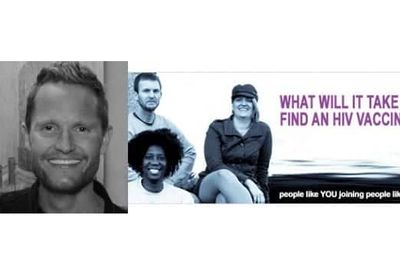Vanderbilt has been at the forefront of the fight against HIV prevention for over two decades, and this week marks a major new milestone in that fight, both locally and internationally. Enrollment has just begun in the first of two parallel, multinational clinical trials testing a new strategy in HIV prevention—the Antibody Mediated Prevention (AMP) study. Vanderbilt has just enrolled its first participant, the first to be enrolled by any of the clinics participating in the study in the Americas.
A good deal of research has been devoted to developing a vaccine, which would prompt the immune system to produce broadly neutralizing antibodies: so far developing a vaccine for HIV has defied traditional techniques however. AMP will will deliver broadly neutralizing antibodies directly to a patient through IV infusion.
The AMP study will also test whether such infusions could offer long-lasting resistance to HIV infection. If the infusion offers weeks or months of resistance, adherence might be higher than with a daily pill, for instance.
“The immediate goal of antibody-mediated prevention of HIV is for each VRC01 infusion to have a protective effect that lasts for many weeks,” said Protocol Chair Myron Cohen, who also serves as associate vice chancellor for global health at the University of North Carolina at Chapel Hill. “Such a long-acting HIV prevention regimen might be easier for some people to follow than a daily regimen of oral medication, as currently required to prevent HIV infection.”
The volunteers in both AMP studies will be adults at high risk for HIV infection, but HIV-negative when they enter the study. In each trial, volunteers will be assigned at random to receive an IV infusion of one of two doses of the antibody or of a saline solution (a placebo). Neither the volunteers nor the study investigators will know who receives which type of infusion until the end of the study. Volunteers will receive a total of 10 infusions, once every 8 weeks, and then will be followed for 20 more weeks. The results of the trials are expected in 2022.
Vic Sorrell, Community Engagement Coordinator for the Vanderbilt HIV Vaccine Program, highlighted a few elements that set this study apart, besides its extreme breadth and scope. “Besides being the first study to work with antibodies directly rather than a vaccine, this study will also be the first to significantly enroll trans-men and -women,” Sorrell said. “This is data that needs to be there in HIV research in general, but it’s woefully lacking.”
While Vanderbilt has already enrolled its first participant, which has been confirmed to be the first in the Americas, Sorrell predicts that the process of getting nearly a hundred participants enrolled will take quite a bit more time.
“This is a study that is only enrolling people who are at significant risk—they obviously want to enroll a community that would be most benefited should there ultimately be an efficacy component, so thats a part of why the process of enrollment is so time consuming,” Sorrell said. “The other thing is, you’re talking about ten infusions, with blood draws in between, over twenty-two months: some people don’t have work schedules or proximity to accommodate that so we have a lot of work ahead!”
For more information about the AMP study and study locations, visit http://www.ampstudy.org/. To see whether you are eligible to volunteer for the Vanderbilt trial, visit http://www.vanderbilthealth.com/HIV-vaccine-program/15069 or contact Vic.Sorrell@Vanderbilt.edu.
